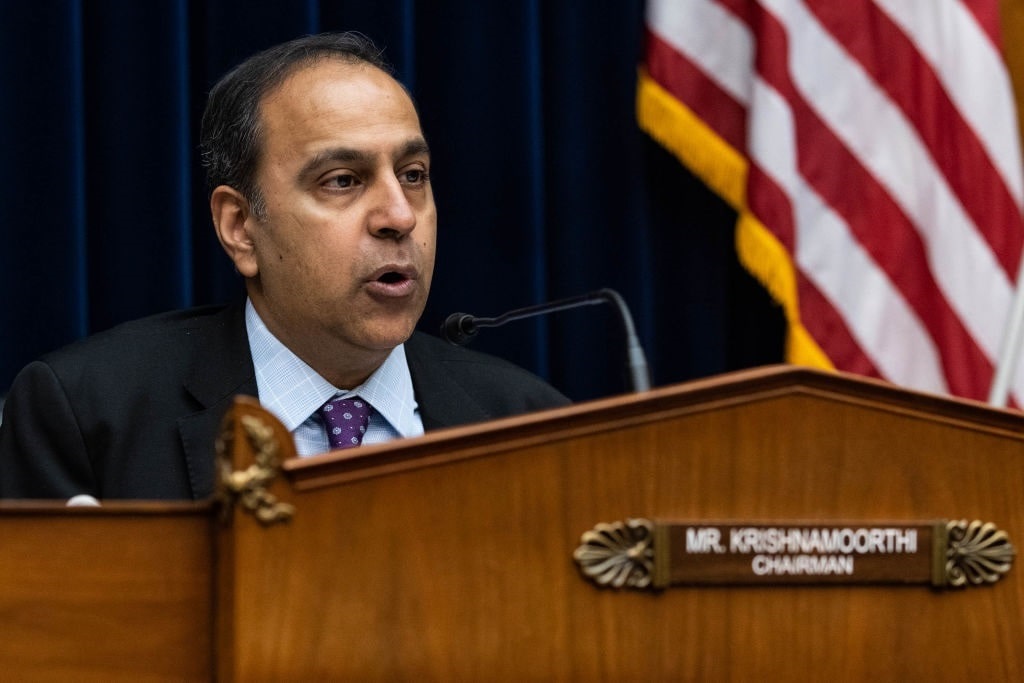Examining Beijing’s threat to the the information battlefield.
To understand the extent to which China’s ruling party has employed a strategy for influencing Americans’ use of information, Congress held a hearing to probe the subject more deeply. The Select Committee initiative established by the 118th Congress sought to make an in-depth assessment of “The Strategic Competition Between the United States and the Chinese Communist Party (CCP).” What would follow was a chilling exposition of propaganda and spin designed to fuel a pro-China narrative across the digital world.
Select Committee Heard Sobering Testimony
On the evening of November 30, Chairman Mike Gallagher (R-WI) called to order the meeting to hear testimony on the subject, “The CCP’s Strategy to Shape the Global Information Space.” During the hearing, testimony revealed a bipartisan assessment of just how weak the US defense is against the dangerous threat posed by China on the information battlefield. The information brought forth was at the same time frightening and, yet, somewhat reassuring, as both sides of the aisle were in lockstep, united in grasping the palpable threat of the People’s Republic of China’s (PRC) inexorable march to influence the minds of Americans and others across the globe.
Chairman Gallagher set the stage in his opening remarks for what would be a chilling discussion on the vulnerability of America and the West to Beijing’s intense influence operations. The committee chairman said:
“In Xi Jinping’s view, the war has already started on the most important battlefield: your mind. The realm of ideas… is a ‘smokeless battlefield.’ Cognitive warfare is not something we tend to think about here in the West. Sure, we have ideas like soft power, but they’re not a national strategy…Make no mistake: the battle of our minds is already joined, and Congress must act with urgency to prevent the CCP from seizing the high ground.”

Raja Krishnamoorthi (Photo by Graeme Jennings-Pool/Getty Images)
Echoing the chairman’s sentiment, Ranking Member Raja Krishnamoorthi (D-LI) warned, “This is the challenge we face, a tech-savvy CCP intent on twisting narratives to undermine the US and come out on top in this strategic competition,” he said. “If we turn our heads and look away, we risk ceding control of our public discourse to the CCP. We must be resolute in embracing facts and repelling malign influence operations.”
Those testifying were Mr. John Garnaut, Senior Fellow, Australian Strategic Policy Institute; Dr. Miles Yu, Hudson Institute; and Yaqiu Wang, Research Director for China, Hong Kong, and Taiwan at Freedom House. Each of the witnesses made the point that China is obsessed with using language to influence the global narrative to elevate the PRC and its worldwide endeavors and diminish the status and importance of Western ideals, specifically American democratic values.
China’s Discourse Dominance
Dr. Yu pointed out in his opening statement the CCP needed to move away from the optics of propaganda with its inherent disinformation and falsehoods, as well as the concept of “indoctrination.” Consequently, the CCP “needs a new siren call for international propaganda, now sugarcoated as ‘discourse power.’” However, Yu believes “discourse power” is an inaccurate description of the PRC information architects’ intent. He believes the more precise words should be “discourse dominance.” As Dr. Yu explained, “discourse dominance” is “true to the letter and spirit of the Marxist-Leninist theory of propaganda.”
The view of Mr. Garnaut is that what the US faces in attempting to win competition for ideas with the CCP is more closely comparable to intellectual combat with narrative as ammunition. Garnaut offered this caution: the CCP “has an obsession with language, with discourse…Discourse is the primary battlefield…I think the logic is…if you can shape the words and the language people use, you can shape their perceptions and, eventually you shape the way that they think, and you shape their decision making.” Garnaut also made this sobering observation.
“China’s messaging and influencing systems are vast and complex, but the messages themselves are straightforward. Boiled down, the Party’s meta-narrative goes like this:
- China is inherently peaceful and beneficent,
- The growth of China’s relative power is inexorable, and
- China is vengeful and dangerous if provoked.”
The dangers of social media with origins in China, like TikTok and WeChat, were of particular interest to Ms. Wang, who uses WeChat as an example of a social media platform “owned by Chinese tech giant Tencent and heavily use among the Chinese diaspora,” living as ex-pats or naturalized citizens of Chinese descent around the world. Wang explained in her written testimony, “All Chinese social media companies, private or public, are subjected to the control of the CCP, which creates an opportunity for Chinese government censorship, surveillance, and propaganda that affect not only their China- based users, but those around the world.”
For those on the committee and in the audience, the hearing was a wake-up call that was deafening. What America faces and has demonstrated it is wholly unprepared to address was summed up in Dr. Yu’s testimony submitted for the record. “Within the People’s Republic of China, propaganda is an essential mechanism for normal governance. For communists, propaganda is not a morally reprehensible act characterized by a false representation of truth. Rather, propaganda is a necessary virtue, a positive and crucial practice of governance.” The Select Committee’s hearings are a reflection of Congress’s taking seriously Yu’s words. All Americans should heed the warning and understand sifting truth from Beijing-based fiction is crucial. China is a threat to democracy.
The views expressed are those of the author and not of any other affiliation.

